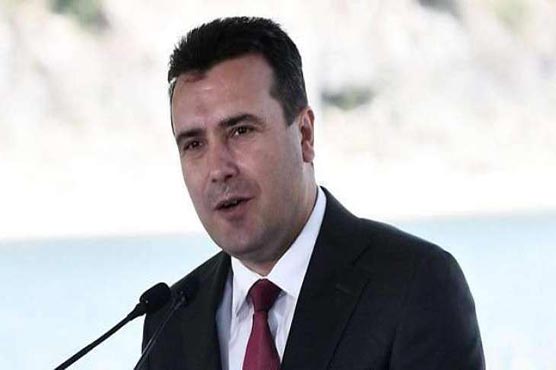Russian comedy duo pranks North Macedonia PM

The pair advised Zaev to bribe the patriarch with 100,000 euros.
SKOPJE (AFP) - Two Russian pranksters famous for hoax phone calls have tricked North Macedonia’s prime minister into seemingly agreeing to pay a bribe and accusing Russia of having "many spies" in the Balkans.
Social Democrat Prime Minister Zoran Zaev apologised Tuesday over what the right-wing opposition labelled a "scandal" but said he would not resign as demanded by political rivals.
Zaev addressed reporters after a telephone exchange with the duo -- pretending to be Ukraine’s former president Petro Poroshenko -- was released on YouTube early Tuesday.
Vladimir "Vovan" Kuznetsov and Alexei "Lexus" Stolyarov regularly make prank calls seeking to dupe the rich and powerful.
In the call to Zaev, "Poroshenko" offered to help mediate on independence of the Macedonian Orthodox Church with Orthodox Patriarch Bartholomew, the highest Orthodox authority.
The pair advised Zaev to bribe the patriarch with 100,000 euros ($112,000) to speed up the procedure.
Ukraine’s Orthodox Church has broken with Moscow and the patriarch formally confirmed the move in January. At the time Poroshenko was Ukraine’s president.
"However, I must tell you that the only condition for this, and I did it, I personally gave Bartholomew money," the fake "Poroshenko" said in the call.
"In my case, I paid 150,000 euros, it is cheaper for you."
"Excellent, there will be no problem," Zaev replied.
In another of three phone calls which took place between August last year to this April, Zaev, believing he had NATO Secretary General Jens Stoltenberg on the line, estimated that Moscow had "many spies in the region".
"I’m a victim of my openness" and "fraudsters from countries with anti-NATO orientation", Zaev said.
He assured reporters there were no "security issues" arising from the calls.
"Vovan" and "Lexus" have a track record of snaring the unwary, counting among their victims Elton John, former British foreign minister Boris Johnson and Belarus President Alexander Lukashenko.
Their preferred targets are mainly opponents to the Kremlin, both foreign and Russian.
In April they tricked Kosovo Prime Minister Ramush Haradinaj.
Russia strongly opposes Skopje’s NATO bid and was also against the change of the country’s name from Macedonia to North Macedonia earlier this year which ended a long-running dispute with Greece.
Skopje is expected to enter NATO later this year.

